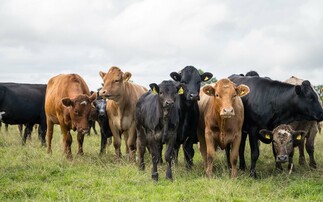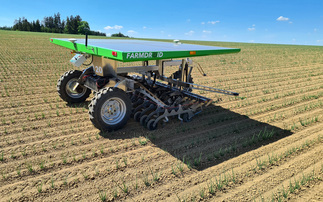
Lantra Chief Executive, Marcus Potter with Lantra Chair of Trustees, Dr David Llewellyn CBE
That was the message from chair of trustees, Dr David Llewellyn who warned labour shortages were reducing the amount of food produced by farmers, with consequences of food security, as well as putting pressure on health and wellbeing of the existing farm workforce.
Apprenticeships
He believed greater use of apprenticeships was one way from the industry to recruit and train much needed new entrants into agriculture.
Mr Llewellyn said: "We have to look at new entrants in the system and continue the professional development of those within it. We all know technology is changing rapidly and we have to do something to ensure our existing workforce is trained and developed to embrace apprenticeships."
Read also: Careers Zone set for a return to LAMMA
Lantra has commissioned its own research to identify barriers that were limiting engagement with apprenticeships.
Lantra's director of external relations, Corrina Urquhart said whilst there is high appetite among farm businesses to take on apprentices, what the research does show is that the process needs de-risking, both for the new entrant and for the farmer taking on the apprentice.
"We are seeing more entrants coming from non-agricultural background, that is a risk for the farmer. For the new entrant it is quite risky for them to go for a farm that hasn't ever employed an apprentice before."
New entrants
Ms Urquhart added: "Íæż½ã½ã already have so many risks. If Lantra and industry partners can de-risk the process then it would be a good thing then it would allow apprentices and new entrants to come through."
The research found from those who employed an apprentice, 23 per cent said the apprentice left within six months.
Read also: Jobs In Agriculture announce seven ambassadors for their #CareersInAg campaign
"When we look into the focus groups on why that is. It is because apprentices are able to get a better paid job on farm, which shows there is competition within farming businesses, but also 20 per cent left the industry completely which is something to learn from and reflect on for the future."
The research also highlighted a lack of HR skills and the inability to get spare time to look into apprenticeships.
She added: "We also explored the seasonality of farm work. There might not be enough work to keep the individuals occupied so farmers should explore apprentice sharing."





























